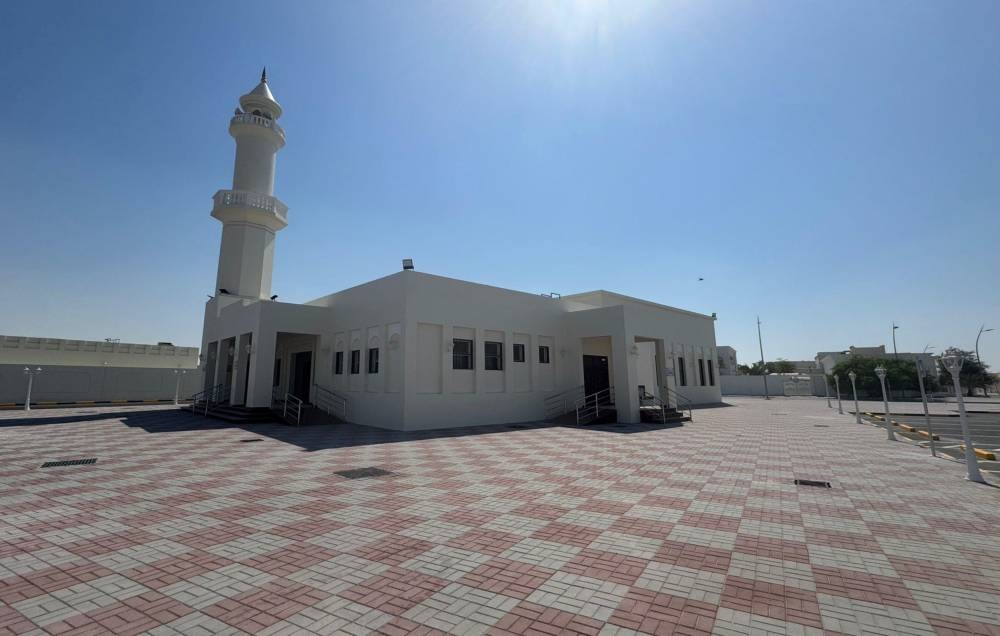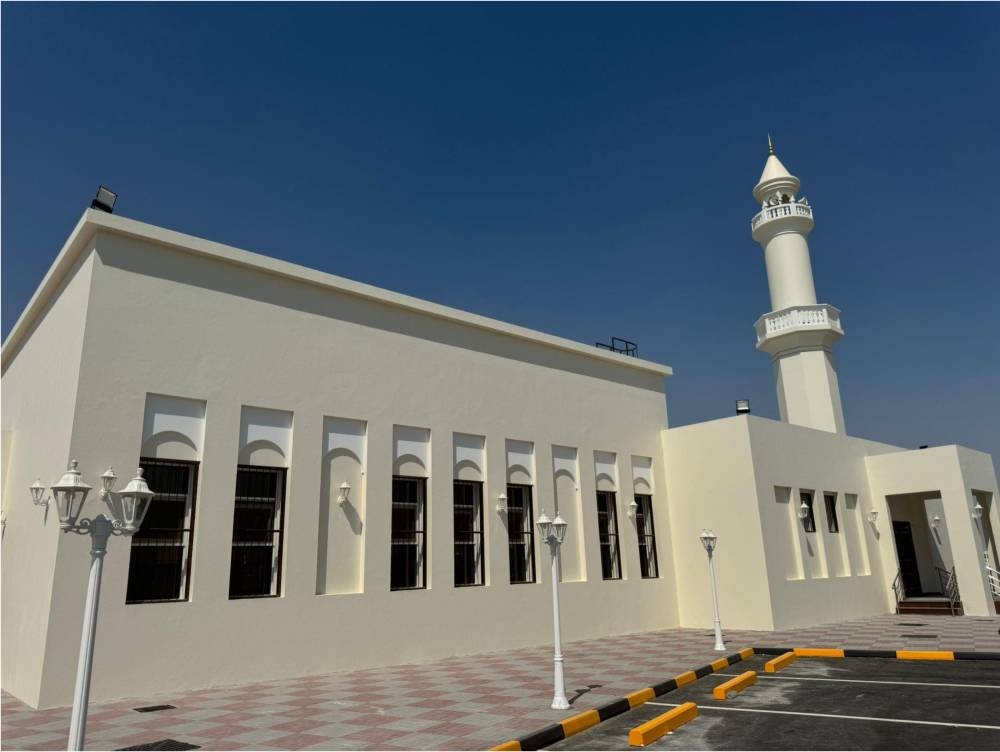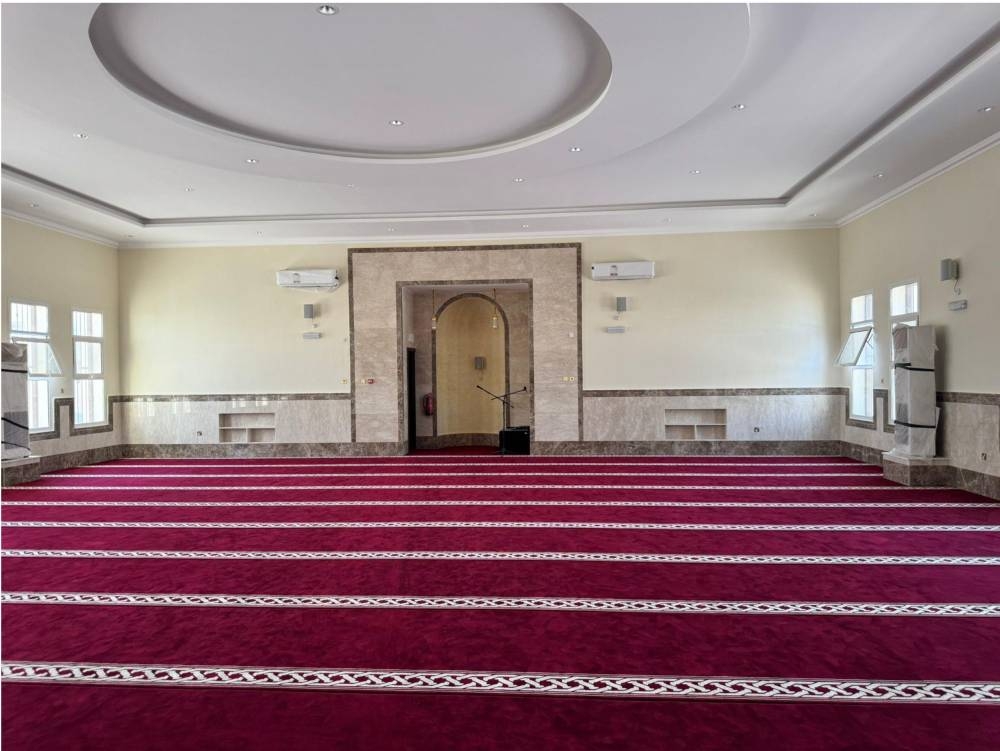The Ministry of Endowments (Awqaf) and Islamic Affairs, represented by the Department of Mosques, has opened a new mosque in the Al-Siliya - Mu’aizilah area. Naji Awad Hussein Al-Hababi Mosque was opened at the end of December 2024, according to an official statement from Awqaf.
Spread over an area of 6,540sq m, the mosque can accommodate 360 male and female worshippers.
The opening of the mosque, which was endowed by Naji Awad Hussein al-Hababi, is part of Awqaf’s plan to expand the number of mosques in all regions of the country, keeping pace with urban and population growth, which is in line with Qatar National Vision 2030.
With number MS M.S. 499, the mosque has a main prayer hall with space for 300 male worshippers in addition to a women’s hall for 60 worshippers. Also, there are houses for imam and muezzin.
The mosque also includes a spacious ablution place in addition to a large number of public parking lots, several of which are allocated to persons with disabilities. The entrances and exits of the mosque are disability-friendly.
###OPT CUT
The Department of Engineering Affairs at the ministry is concerned with fulfilling the needs of the regions in the country for mosques and prayer grounds while providing temporary mosques and supervising their preservation as well as preparing the annual plan for the maintenance of mosques and imams’ residences. These are in co-ordination with the competent authorities.
For mosque designs, the department takes into account the requirements of different areas along with the guidelines for green and sustainable buildings and preserving the aesthetics of heritage in designs that reflect the authenticity of Qatari and Islamic heritage by the highest standards.
The ministry’s plans to build mosques also take into account the population density map along with engineering, architectural specifications, and heritage aspects within the framework of caring for the mosques to perform worship and serve the worshippers. Awqaf’s website allows users to search for mosque locations geographically, according to the global navigation system, through accurate and specific maps that facilitate access to mosque locations in all cities across the country.



